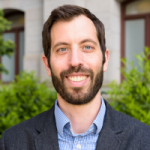Energy efficiency can produce numerous economic, health, and environmental benefits, but most utility and third-party programs do not adequately serve the households that would stand to gain the most, such as renters and low-income households.
Join us to learn about a new ACEEE toolkit highlighting best practices for increasing program participation among underserved residential customers. We will discuss strategies for programs to better reach all underserved households as well as specific strategies for reaching renters, income-eligible households, and rural households. Attendees will also hear from guest speakers who have successfully incorporated many of the strategies into their programs.
Speakers:
Jasmine Mah, Research Analyst, American Council for an Energy-Efficient Economy
Jasmine conducts research on policies, programs, and funding sources that simultaneously improve human health and energy efficiency. Prior to joining ACEEE, Jasmine worked for the National Center for Sustainable Transportation. She has a Master of Science in environment and development from the University of Leeds, and a Bachelor of Science and Bachelor of Arts from UC Davis.
Alexis Washburn, Northeast Regional Director, Emerald Cities Collaborative
Alexis leads and supports sustainable development projects in Massachusetts and beyond that advance social, economic, and climate justice within the clean energy economy. She is interested in building collaborative, multi-sector approaches to support community-driven solutions that result in expanded access to and increased participation in clean energy opportunities for consumers, workers, and small-business owners in and serving frontline communities. Prior to joining ECC, Alexis worked as program analyst for the Massachusetts Department of Energy Resources (DOER). At the DOER she led initiatives to support increased access to and participation in statewide energy efficiency programs for historically underserved populations. Alexis earned a master of urban and environmental policy & planning from Tufts University and a bachelor of arts in environmental science from Boston University.
Alon Abramson, Director of Residential Programs, Philadelphia Energy Authority
Alon oversees Solarize Philly, the nation's largest solarize program to help all Philadelphians go solar, as well as Built to Last, an initiative to deliver holistic home improvements to low-income homeowners by layering together existing improvement, health, and energy efficiency programs. Alon's work is fully aligned with the Philadelphia Energy Authority's mission to leverage energy as a tool for real social impact by improving the environment, reducing utility costs, and creating jobs.
Moderator: Reuven Sussman, Director of the Behavior, Health, and Human Dimensions Program, American Council for an Energy-Efficient Economy
Reuven conducts research on energy efficiency behavior change and co-chairs the annual conference on Behavior, Energy and Climate Change (BECC). He has authored academic papers and book chapters on the psychological determinants of pro-environmental behavior. He has advised organizations, including the G20, that implement energy efficiency behavior change programs, and served as an expert reviewer for academic journals and large-scale grant opportunities. Reuven is also an adjunct professor at the University of Victoria (Canada) and the winner of the 2019 Early Career Award from the Environmental, Population and Conservation Psychology division of the American Psychological Association. He serves on the editorial board of the Journal of Environmental Psychology and Journal of Social Psychology. He earned a doctor of science in social and environmental psychology from the University of Victoria.
By registering for this event, you are opting to receive future email communication from ACEEE. You may unsubscribe via the link included in all emails.



